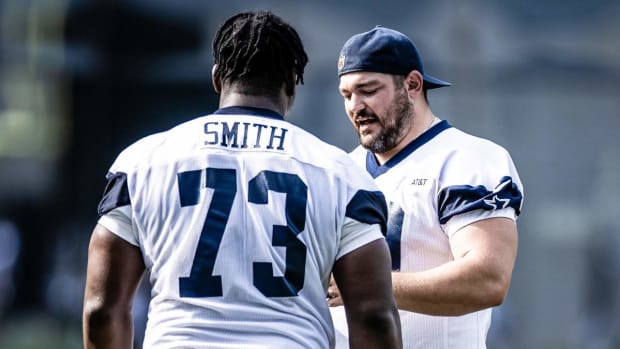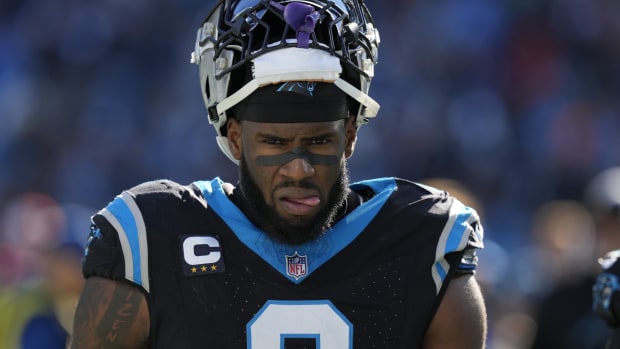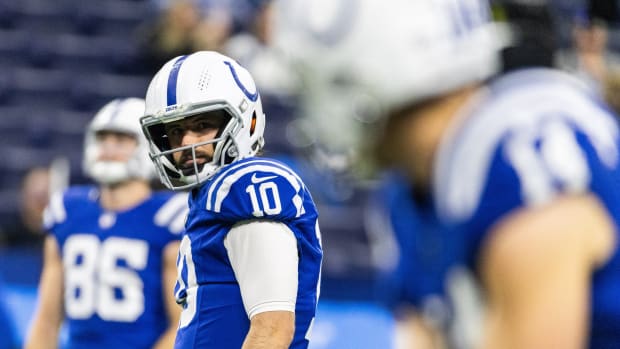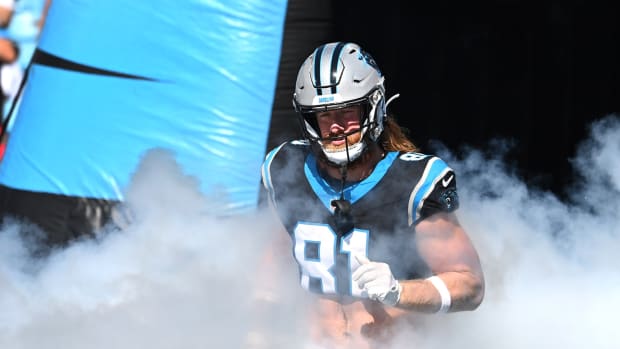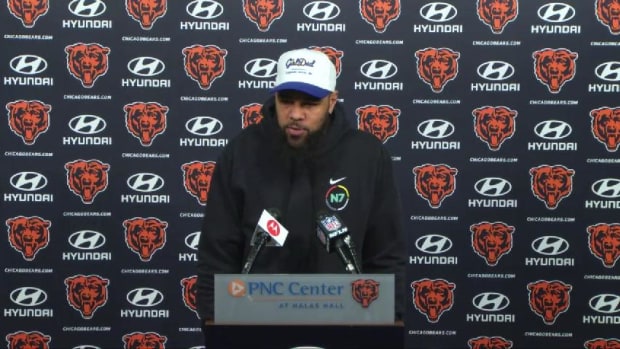NFL's punishment for Brady, Pats shows league's lack of perspective
As it turns out, Bob Kraft isn’t going to get that apology from the NFL that he demanded back in January. Even though he might deserve it more today than he did then.
The NFL absolutely hammered Tom Brady and the Patriots on Monday with its breathtaking Deflategate punishment ruling, an edict that seemingly lacked for nothing, save perspective.
But then again, when a league starts seeing even minor infractions as a threat to the integrity of the game and the public’s confidence in pro football, that’s when every scandal suddenly takes on the importance of the Black Sox affair.
The NFL apparently doesn’t do nuance any more. It either underreacts or overreacts, but it doesn’t spend too much time or effort trying to find that happy medium. This ruling—a four-game suspension for Brady, a record-breaking $1 million fine for the team, and the loss of a first-round pick in 2016 and a fourth-round pick in 2017—only underlines the league’s recent difficulty in keeping the big picture in mind.
• MORE: SI's complete coverage of Deflategate
Did Tom Brady have more than a little something to do with those footballs being a bit under-inflated on the day of January’s AFC Championship Game against the Colts? Of course he did. That’s been obvious since the moment this story broke, because there was no one else in New England who had a vested interest in how gripable those game balls were.
Punishment was certainly in order. But it should have been a punishment that remotely fit the crime, not an over-the-top reaction to a practice that is thought to be all but part and parcel with playing quarterback in the NFL—that is, each passer’s never-ending search to create his best possible comfort zone with his most important piece of equipment, the football.
Tom Brady suspended: List of NFL suspensions over past three seasons
The NFL, for reasons that still aren’t very clear, inflated this story to great importance, and then doled out harsh penalties accordingly, even though no definitive proof of ball tampering surfaced in the Ted Wells investigation. But in the end, the league elevated this sordid little tale of ball deflation and edge-chasing to something approaching the same level as Paul Hornung and Alex Karras being suspended in 1963 for gambling on NFL games.
Gambling by active players? Steroid users? Now those are legitimate integrity of the game issues. Those deserve to be an example of how the public’s confidence in the game can truly be called into question. Deflategate? Please. If that’s the tipping point for what triggers the public’s confidence in the game to be shaken, it says more about the public’s level of cynicism than anything else. We see conspiracies and cover-ups everywhere these days, and even when they do exist, we over-dramatize them into the biggest and most shocking scandal of all time. Until the next one comes along and tops it.
To be clear, Brady is no martyr here. He could have gotten out in front of this story and right from the start admitted some culpability in game-ball doctoring. He could have taken some of the blame if he applied too much pressure on some Patriots underlings to make him happy, and copped to his ultra-competitiveness pushing the envelope too far in this case. A little honesty would have bought him a lot of potential slack, if he could have just looked in the camera and tried to convince everyone that it was never about cheating or trying to besmirch the integrity of the game. That would have limited the damage.
• BENOIT: Let Brady deflate the footballs
But he didn’t. And I think he paid for that lack of perception dearly, in terms of his 2015 season and his reputation. But so too has the league lost out in this saga. Because the NFL knows it had some sloppy pre-game protocols in place in terms of its game ball preparation and inflation-testing levels, and yet it still treated this incident as if the league and its game officials were completely blameless in the matter. (Watch and see how quickly those loopholes in the system get changed before the 2015 season.)
Tom Brady's agent calls Deflategate suspension 'ridiculous'
Instead the NFL acted as if it was shocked, shocked to find out that quarterbacks might play a little fast and loose with its decades-old ball inflation standards. But instead of moving to tighten up its practices and better guard against what was once considered in the range of gamesmanship and penalizing New England in proportion to its rule-bending, the league reacted more as if the Patriots perpetrated one of the most blatant and grievous cases of cheating in the game’s history. Even though the NFL knew 2007’s Spygate, and the illegal taping of an opponent, was in every way far worse (and for that Bill Belichick was fined $500,000 while the Patriots were additionally fined $250,000 and denied their first-round draft pick).
And that’s pretty much how we got here, with this serious but ultimately misdemeanor-level offense being punished as if it was a first-degree felony, with the conduct detrimental clause being thrown around way too loosely. The league didn’t think all the way through this situation before digging ever deeper, and I know Brady could have used a course correction somewhere along the way.
Without a doubt, the integrity of the game is important, but the issue in which that very consequential charge is invoked should be equally important. Because ultimately, public confidence in the game can be shaken in any number of ways: by the judgment exhibited by those who play the game, but also by those who lead it.
































